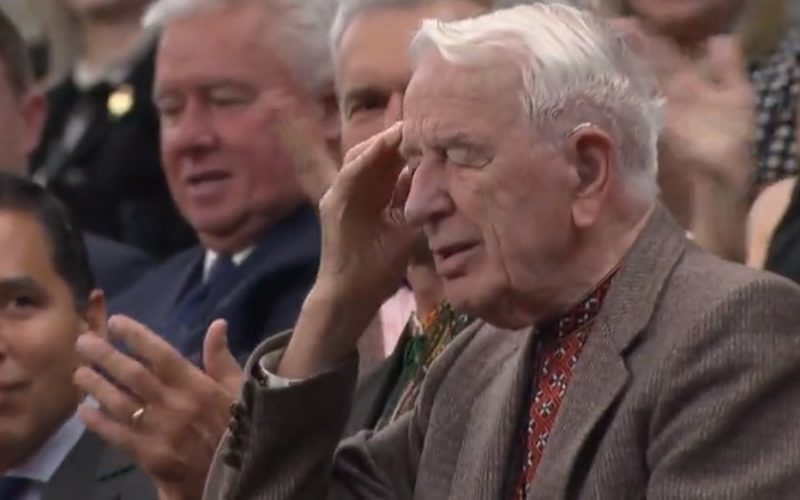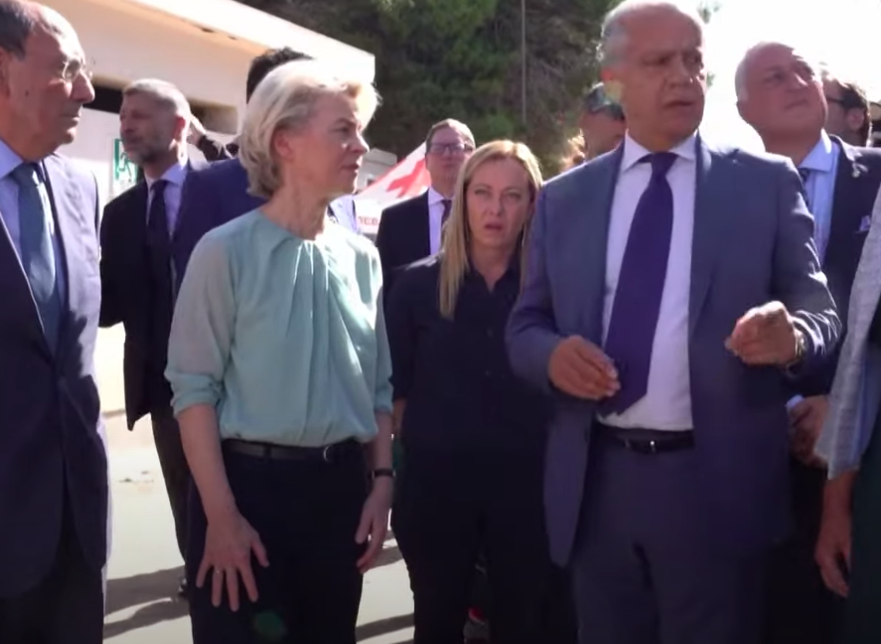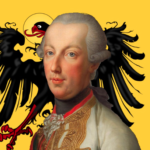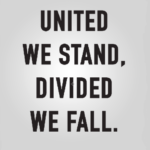The Hapsburg monarchy and the European Union bear very striking resemblances. Of interest is especially the period of the reign of Emperor Joseph II (ruled 1765-1780 with his mother Marie Theresa, and 1780-1790 on his own), who went down in history as the great reformer, a revolutionary on the throne. During his tenure the Hapsburg monarchy was – just like the present-day European Union – an ethnically and culturally diversified political entity. Within its borders the following languages were spoken: German, French, Dutch, Italian, Czech, Hungarian, Slovene, Croatian, Slovak, Polish, and Ukrainian, to name the major ones. The whole structure was ruled from Vienna, just as today the European Union is ruled from Brussels. Though the European Union respects national languages, one may rest assured that its managers will slowly but surely impose one language across the Union and it is going to be English, despite the fact that the United Kingdom has ceded from the EU. Consider Ursula von der Leyen or Klaus Schwab for that matter: you only hear them speak English, not their native tongue, and you can feel the thrill that they get from it even though the latter of the two personages has a hard time pronouncing the English sound represented by the ‘th’ cluster of letters. Who cares? When French was regarded as the language of the managers of the world, not all of those managers mastered the language.
Coming back to our comparison. Joseph II was – just as the managers of the EU are – obsessed with reforming everything he or they can lay their hands on. And just like Joseph II, the managers of the EU adopt the patronizing attitude towards their subjects because they – just as Joseph II – know better what will benefit the people. How do they know that? They know it from the ideologues that they admire, under whose influence they are. Joseph II imbibed the ideas fabricated by John Locke, d’Holbach, Denis Diderot, Jean-Jacques Rousseau, Montesquieu, Voltaire (François-Marie Arouet), and others. He was intoxicated with those ideas. The managers of the European Union are intoxicated with the ideas of Karl Marx, Leon Trotsky, Henri Bergson, Antonio Gramsci, Karl Popper, Erich Fromm, Herbert Marcuse, Theodor Adorno, Max Horkheimer, Jean-Paul Sartre, Yuval Harari, and many, many others. To put it otherwise: both Joseph II and the present-day managers of the present-day Hapsburg monarchy (i.e. EU) draw inspiration not from reality, real life, but from the schizophrenia of the philosophers that they follow. What they – the 18th century revolutionary on the throne in Vienna and the modern revolutionaries in the offices in Brussels – have in common is also the fact that they all want to regulate everything to down to the minutest detail. Consider some of the reforms.
• The abolishment of the capital punishment. Yes, it was Emperor Joseph II who came up with this idea; the managers of the European Union followed suit. No country may become a member-state of the EU unless it abolishes the death penalty if it happens to have it.
• Emperor Joseph II cared very much about nature, about the environment to the point that he prescribed doing away with wooden coffins and either using the same for new burials or burying people in sacks. Does that not remind one of the EU ideas to refrain from eating meat and using fossil fuels?
• Emperor Joseph II believed in the efficiency of central authority. The managers of the EU reflect the same conviction: member-state governments are being constantly deprived of more and more of their prerogatives or competences.
• Emperor Joseph II expanded his administration, and so does the European Union.
• Joseph II would produce edicts, decrees, regulations lavishly and abundantly: 6 000 during his ten-year reign, i.e. two documents per day; the European Union is not lagging behind by any means.
• Emperor Joseph II would prescribe such details as for example how many candles were allowed to be burning during a church service… One need only to think about the EU’s definition of what a banana is or what to classify as fruit or vegetable.
• The emperor was anti-Church: he abolished a number of church festivals (why waste time in idleness?) and gained notoriety due to his abolishment of many monasteries and cloisters which he regarded as useless. Just as today, prayer and divine service are considered superstition to say the least. You remember the adamant refusal of the EU to include Christianity in the preamble to the constitution of the European Union, don’t you?
• The emperor was busy destroying the social cohesion and the ideological foundations of his monarchy (for all practical terms a union of former states): his edict of religious toleration and the emancipation of Jews followed by the permission of imposing interest on loans along with the recognition of marriage as a civil union (yes, already at that time!) slowly undermined the traditional society with its set of moral values, of which usury (interest on loans) mattered a lot. The European Union follows in the same footsteps: the importation of Muslims and Hindus and the suppression of European traditional values are in full swing. This alone slowly brings about the change of European culture. Similarly to today’s changes that enable a Hindu or a Muslim to run an otherwise (at least nominally) Christian nation or to hold an important position in it, Joseph II paved the way for non-Europeans and non-Christians – at that time Jews – to work as civil servants, occupy high posts and be admitted to the ranks of the nobility not because of their pedigree, but because of their wealth.
• Also, it was not the original idea of the architects of the European Union to abolish border customs: Joseph II did it as first within his monarchy, which was, as already mentioned, a cluster of formerly independent kingdoms (Czechia, Croatia, Hungary, Poland).
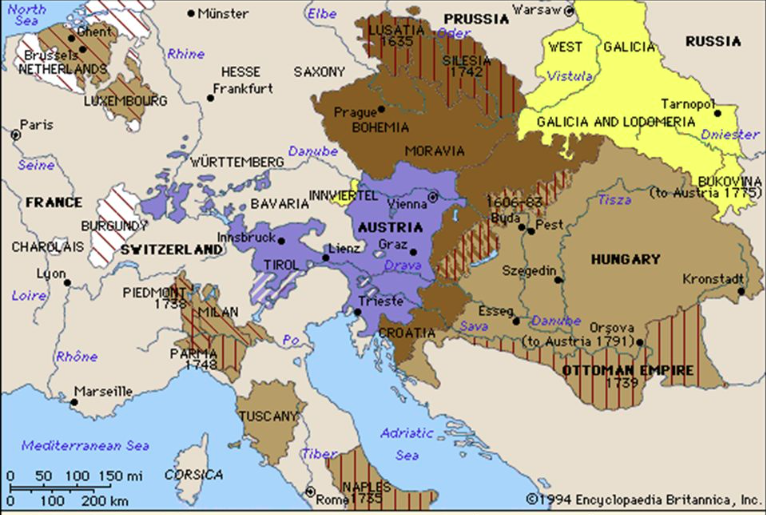
Just as during the reign of Joseph II, so, too, now, all these reforms, changes and regulations were/are too many, too detailed, too quickly, and too soon. The reformers behave like they were moulding a figure out of clay: they think that everything goes, they think that the subjects or citizens see eye to eye with them on all these changes, they think that the people at the other end of the reforms are grateful. Why do the reformers think so? Because they live in a fairy land of their won imagination fertilized with the pseudo-intellectual sperm of the respective philosophers. True, Joseph II did his best to learn how common people live: he tarvelled under a disguise across his many lands and abroad, and is even known to have ploughed a stretch of a field with his own hands. Also today we get such clowns: high ranking politicians or activists who love to display how down to earth they are. A day’s labour does not compare to a year’s labour, while a monarch or a politician at a plough is no more than a show for the people. That kind of experience is no experience at all, and consequently does not entitle the monarch or the politician to claim that he knows how to run all businesses.
Managing society or economy or whatever of the kind is like managing your own body. The reality is that you cannot manage or control society anymore than you can manage or control your body. That is you can, but only up to a point and strictly obeying the signals that society or the body provide. Just as you cannot eat to store food in your stomach for later digestion but you need to eat small portions at certain intervals, just as you cannot demand of your body much physical strain or skill without previously training it patiently, step by step for months or years, so you cannot transform society at the snap of your fingers even if your ideas seem to be oh so beneficial. Those ideas only seem to be oh so beneficial, but are they? Reformers of all times and ages seem to be impervious to common sense. Worse, they think they are omnipotent, they think they are capable of taking into account all factors, so that no results produced by their reforms will surprise them. That’s a huge delusion. Joseph II fell for it, and today’s managers of the European Union fall for it. The latter all the more so because they are armed with computers!
Consider: the abolishment of church holidays meant the abolishment of days free of work. Why should labourers be pleased with this change? The abolishment of the capital punishment means that it is not the state but other (secret? criminal?) organizations that henceforth have the monopoly of meting out the severest of all punishments i.e. ultimate power goes to them. Who are you going to obey, who are you going to fear: the government that cannot kill you, or the mafia that can? Joseph II prescribed that 70% of a peasant’s income be retained by the peasant, i.e. all manner of taxes ought not to surpass 30%. It looks very nice on paper and is oh so very humane, but can it be maintained in real life? The emperor never ran a business, never dealt with contractors or employees: how did he know what was feasible and what was not? Ah, surely, he had advisors, but then advisors are usually the people who are good at guessing the wishes of their superior and complying with them. It is very easy to decree something from a desk; it is an entirely different story to put decrees into practice. The managers of the EU are, like the emperor, oblivious to this truth.
Joseph II’s reforms produced chaos rather than a blessing. People began to revolt: Hungarians did and the burghers of Brussels did (the lands of present-day Belgium belonged then to the Habsburgs). What an irony of history! Is Brussels going to rebel in the foreseeable future against the EU commissioners along with their decrees and decisions produced by the thousands? Notice in passing that Otto Hapsburg (Hapsburg!) was one of those ardent activists working towards the creation of the European Union. Obviously, the obsessive idea of bringing different nations into one fold and blessing them with tons of directives and decrees runs in this family.
When Joseph II died, his subjects were relieved. Many of his reforms were repealed. He himself prior to his death had grown to be aware of his political failures and revoked some of his decrees. He had himself buried in a simple coffin (not a sack!) with the following legend on the gravestone: Here lies a ruler who, despite his best intentions, was unsuccessful in all of his endeavors. In all likelihood, the same will be applied to the managers of the European Union.

